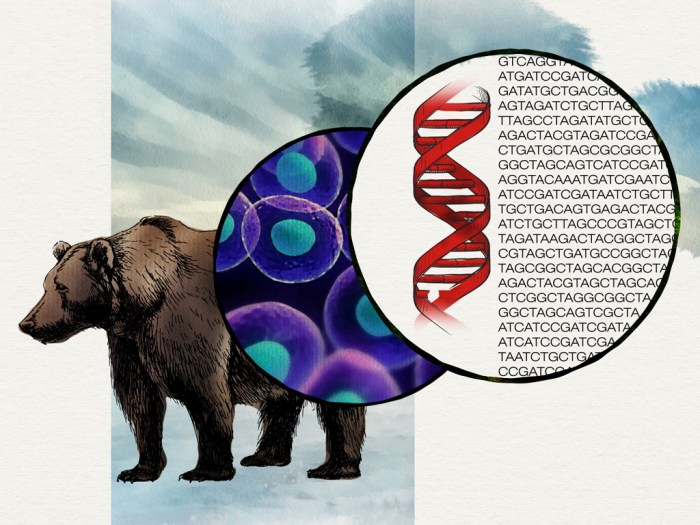Nova labs the evolution lab answers – Nova Labs: The Evolution Lab Answers, a groundbreaking initiative, takes center stage, inviting readers into a world of scientific exploration and discovery. This comprehensive guide delves into the mission, team, research areas, innovations, and global collaborations of this esteemed organization, providing an in-depth understanding of its contributions to the field of evolutionary science.
With a team of renowned experts and researchers at its helm, Nova Labs: The Evolution Lab Answers spearheads cutting-edge research, transforming our comprehension of the intricate processes that shape life’s diversity and adaptation.
Introduction to Nova Labs The Evolution Lab

Nova Labs The Evolution Lab is a cutting-edge research facility dedicated to studying the mechanisms and implications of biological evolution. Its mission is to advance our understanding of the evolutionary processes that shape the living world, from the molecular to the ecosystem level.
The lab brings together a team of world-renowned experts in evolutionary biology, genetics, ecology, and bioinformatics. Led by Dr. Adrian Liston, a renowned evolutionary biologist, the team collaborates to investigate the complex interactions between organisms and their environments, uncovering the driving forces behind adaptation, speciation, and extinction.
Research Focus
Nova Labs The Evolution Lab’s research encompasses a wide range of topics, including:
- Molecular evolution and the genetic basis of adaptation
- Ecological and evolutionary dynamics of populations and communities
- Macroevolutionary patterns and processes, including speciation and extinction
- Evolutionary genomics and the role of gene expression in adaptation
- The application of evolutionary principles to conservation and sustainability
Key Areas of Research

Nova Labs The Evolution Lab focuses on several key areas of research, each with its own specific projects and initiatives.
These areas include:
Genome Editing
- Developing new methods for genome editing, such as CRISPR-Cas9 and base editing.
- Using genome editing to correct genetic defects and develop new therapies for diseases.
- Exploring the ethical and social implications of genome editing.
Synthetic Biology
- Designing and building new biological systems from scratch.
- Using synthetic biology to create new drugs, materials, and devices.
- Developing new tools for genetic engineering and synthetic biology.
Evolutionary Engineering
- Using evolutionary principles to engineer new biological systems.
- Developing new methods for directed evolution.
- Applying evolutionary engineering to a variety of problems, such as drug discovery and materials science.
Machine Learning and Artificial Intelligence
- Developing new machine learning and artificial intelligence algorithms for use in biological research.
- Using machine learning and artificial intelligence to analyze large datasets and identify patterns.
- Developing new tools for data visualization and analysis.
Scientific Innovations: Nova Labs The Evolution Lab Answers
Nova Labs The Evolution Lab has been at the forefront of scientific discoveries, pushing the boundaries of evolutionary understanding. Through groundbreaking research, the lab has made significant contributions to the field, advancing our knowledge of evolutionary processes and their implications.
One notable innovation is the development of advanced genetic sequencing techniques. These techniques have enabled researchers to analyze vast amounts of genetic data, unlocking insights into the genetic diversity and evolutionary history of species. By comparing genetic sequences across different populations and species, scientists can trace evolutionary lineages, identify genetic adaptations, and reconstruct past evolutionary events.
Comparative Genomics
Comparative genomics, a key research area at Nova Labs, involves comparing the genomes of different species to identify conserved regions, regulatory elements, and functional genes. By analyzing these similarities and differences, researchers can infer evolutionary relationships, trace the evolution of genetic traits, and identify genes responsible for specific adaptations.
- Example: By comparing the genomes of humans and chimpanzees, researchers have identified regions of high similarity, suggesting a close evolutionary relationship and shared genetic ancestry.
Population Genetics
Population genetics focuses on the genetic variation within populations and how it changes over time. Nova Labs researchers use population genetic models and statistical analyses to study genetic drift, gene flow, and natural selection. These studies provide insights into population dynamics, genetic diversity, and the evolutionary forces shaping genetic variation.
- Example: Researchers have studied genetic variation in bird populations to understand the role of natural selection in shaping beak morphology and adaptation to different habitats.
Phylogenetics
Phylogenetics aims to reconstruct the evolutionary history and relationships among species. Nova Labs researchers use molecular data, such as DNA sequences, to build phylogenetic trees that represent the branching patterns of evolution. These trees provide a framework for understanding the diversification of life and the common ancestry of different species.
- Example: Phylogenetic analyses have helped scientists trace the evolutionary relationships among primates, revealing the origins and diversification of human and non-human primate species.
Educational Outreach

Nova Labs The Evolution Lab is committed to promoting scientific literacy and engaging students in the exciting field of evolutionary biology. Through its comprehensive educational programs and initiatives, the lab empowers educators and students with the resources and knowledge they need to explore the fascinating world of evolution.
The lab offers a range of educational programs tailored to different age groups and learning levels. These programs include interactive workshops, hands-on experiments, and virtual field trips that bring the principles of evolution to life.
Curriculum Resources
Nova Labs The Evolution Lab provides educators with a wealth of curriculum resources to support their teaching of evolutionary biology. These resources include lesson plans, interactive simulations, and downloadable materials that align with national science standards.
Student Engagement
The lab also offers opportunities for students to engage directly with scientists and researchers. Through mentorship programs and science fairs, students can gain hands-on experience in evolutionary research and develop their critical thinking skills.
Online Learning
Recognizing the importance of accessible education, Nova Labs The Evolution Lab offers online courses and webinars for students and educators. These online resources provide flexible and convenient learning opportunities for those who may not be able to attend in-person programs.
Global Collaborations
Nova Labs The Evolution Lab has established numerous international partnerships and collaborations with leading research institutions and organizations worldwide.
These collaborations play a pivotal role in advancing evolutionary research by fostering knowledge sharing, resource pooling, and cross-cultural perspectives.
International Partnerships
- University of Oxford, UK:Joint research projects on the genetic basis of adaptation and speciation.
- Max Planck Institute for Evolutionary Biology, Germany:Collaborative studies on the evolution of complex traits and genome-wide analysis.
- National Institute of Genetics, Japan:Exchange programs and joint workshops on population genetics and molecular evolution.
International Collaborations
- Human Origins Initiative:A global consortium investigating the origins and evolution of humans.
- International Barcode of Life Consortium:A worldwide effort to create a DNA barcode library for all species.
- Earth BioGenome Project:A collaborative project to sequence the genomes of all known species on Earth.
Future Directions

Nova Labs The Evolution Lab continues to chart an ambitious course, with plans to expand its research frontiers and foster scientific breakthroughs. The lab’s future aspirations encompass a multifaceted approach, encompassing fundamental research, technological advancements, and global collaborations.
Key research directions include delving deeper into the genetic basis of complex traits, exploring the role of epigenetics in evolution, and unraveling the mechanisms underlying the emergence of new species. By harnessing cutting-edge technologies, such as high-throughput sequencing and computational modeling, the lab aims to decipher the intricate interplay between genotype and phenotype.
Scientific Innovations
The lab is committed to driving scientific innovation through the development of novel tools and techniques. Researchers are actively pursuing the creation of computational platforms for analyzing large-scale genomic data, enabling the identification of patterns and correlations that were previously hidden from view.
Additionally, the lab is exploring the potential of synthetic biology to engineer organisms with tailored genetic architectures. This approach holds promise for gaining insights into the functional significance of genes and for developing new therapies for genetic diseases.
Educational Outreach, Nova labs the evolution lab answers
Recognizing the importance of fostering scientific literacy, Nova Labs The Evolution Lab is dedicated to engaging with the public through educational outreach programs. The lab organizes workshops, seminars, and online resources to share the latest discoveries in evolutionary biology with students, educators, and the general public.
By inspiring future generations of scientists and promoting a broader understanding of evolution, the lab aims to cultivate a society that values scientific inquiry and evidence-based decision-making.
Global Collaborations
Nova Labs The Evolution Lab actively fosters global collaborations to leverage the collective expertise and resources of the international scientific community. The lab has established partnerships with leading research institutions around the world, enabling the exchange of ideas, data, and expertise.
Through these collaborations, the lab is contributing to global efforts to address pressing challenges in evolutionary biology, such as understanding the impact of climate change on biodiversity and developing strategies for conserving endangered species.
Quick FAQs
What is the primary mission of Nova Labs: The Evolution Lab?
Nova Labs: The Evolution Lab is dedicated to advancing the understanding of evolutionary processes through cutting-edge research, educational programs, and global collaborations.
Can I access educational resources from Nova Labs: The Evolution Lab?
Yes, Nova Labs: The Evolution Lab offers a range of educational programs, resources, and materials for educators and students, fostering a deeper understanding of evolutionary science.
How does Nova Labs: The Evolution Lab contribute to global scientific advancement?
Nova Labs: The Evolution Lab fosters international partnerships and collaborations, facilitating the exchange of knowledge and expertise, and driving progress in evolutionary research on a global scale.